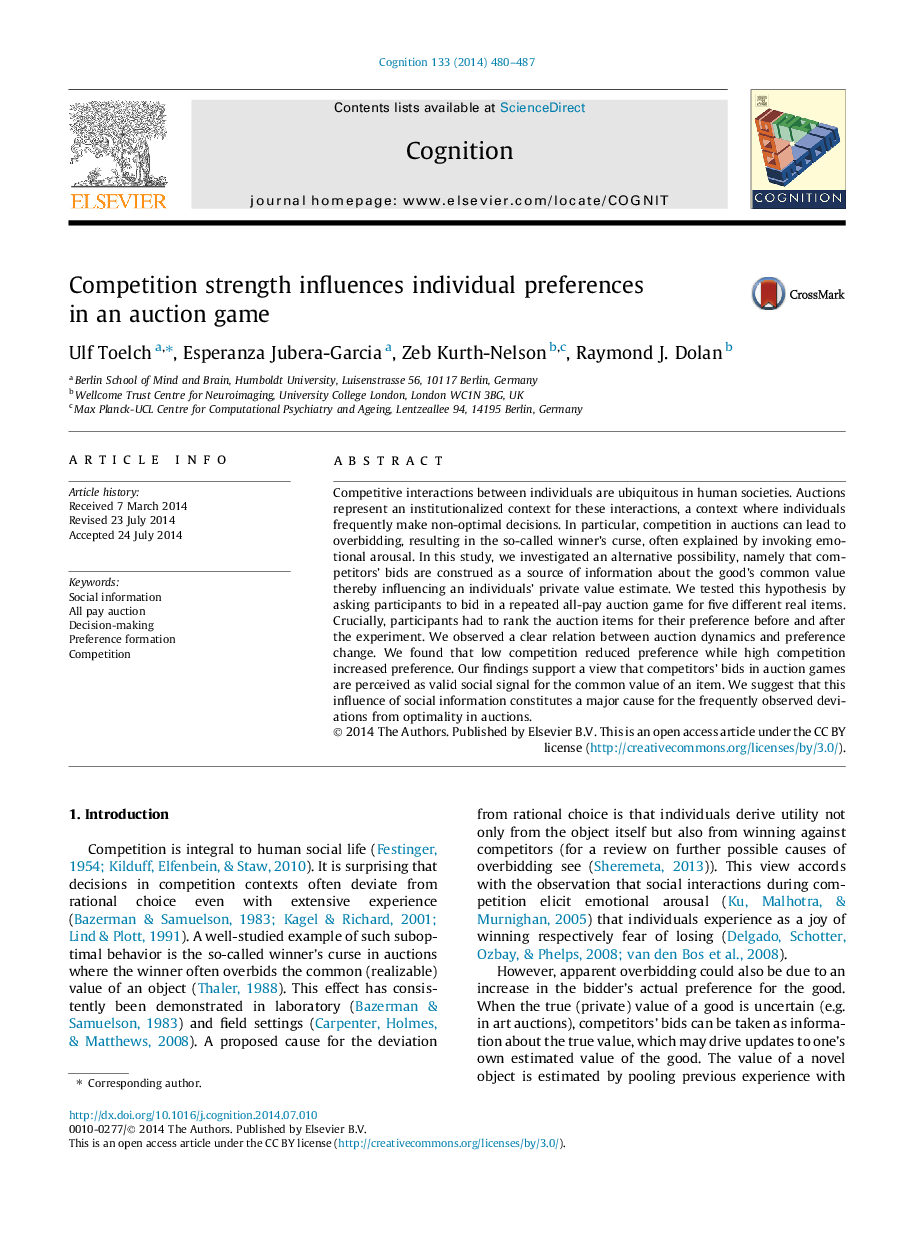| Article ID | Journal | Published Year | Pages | File Type |
|---|---|---|---|---|
| 10457514 | Cognition | 2014 | 8 Pages |
Abstract
Competitive interactions between individuals are ubiquitous in human societies. Auctions represent an institutionalized context for these interactions, a context where individuals frequently make non-optimal decisions. In particular, competition in auctions can lead to overbidding, resulting in the so-called winner's curse, often explained by invoking emotional arousal. In this study, we investigated an alternative possibility, namely that competitors' bids are construed as a source of information about the good's common value thereby influencing an individuals' private value estimate. We tested this hypothesis by asking participants to bid in a repeated all-pay auction game for five different real items. Crucially, participants had to rank the auction items for their preference before and after the experiment. We observed a clear relation between auction dynamics and preference change. We found that low competition reduced preference while high competition increased preference. Our findings support a view that competitors' bids in auction games are perceived as valid social signal for the common value of an item. We suggest that this influence of social information constitutes a major cause for the frequently observed deviations from optimality in auctions.
Related Topics
Life Sciences
Neuroscience
Cognitive Neuroscience
Authors
Ulf Toelch, Esperanza Jubera-Garcia, Zeb Kurth-Nelson, Raymond J. Dolan,
